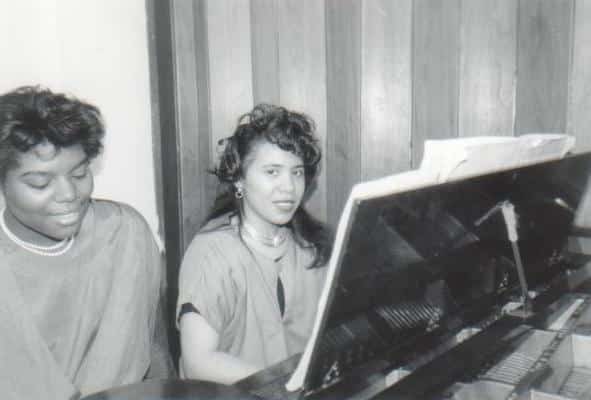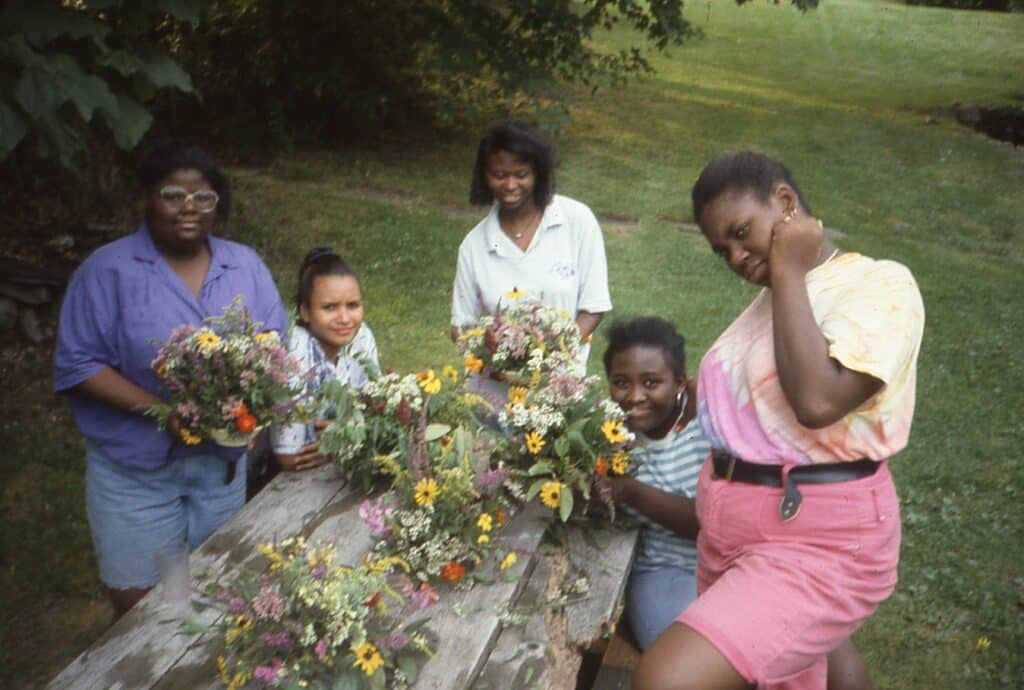We Had a Special Program
The first year that I was on staff at camp was 1990. I had been coming to camp on retreats and for summer camp since I was a young child, but I didn’t work on staff until I was 19. Camp didn’t have the counselor-in-training program yet when I was in my late teens.
I remember a crucial point in my teenage years when I was a camper. There was a really intense campfire in the basement of the chapel. I don’t know how this happened, but people started telling stories and two of my good friends opened up and talked about sexual abuse. Other people were sharing hard things, and we had a healing service. I remember this being like, “Wow. We were able to talk about that.” This was a big turning point at camp for me.
Ken contacted me when I was 19 years old and working downtown at a clothing store on 5th Avenue. I had my own apartment at the time. I hadn’t gone to college yet. I was a couple of years out of high school, but I was on that track. And Ken said, “We need someone to be a counselor for the 10–11-year-old camp.” He said the pay would be $75, and could I use my vacation time to work at camp. Of course I’m thinking, “It’s only $75, I’m on vacation, I don’t want that.” But it was a call to ministry, so I said yes. It totally changed my life.
I was a counselor from 1990 to 1994 and then in 1995 I became a program director. For two of the years in between I was a counselor for the Urban Youth Discipleship Program that ran at camp for just two years. We used the cabin on the hill, and 8–12 girls would stay there for 30 days, for three 10-day sessions. They would go home on the week-ends in-between, but they were in more of an intense program than regular summer camp. The girls had to apply, and their pastors had to recommend them. The girls may have been at risk or would just benefit from the program.
We lived with the girls. We helped them to get along with each other. We started a garden, had sewing classes and exercise time. The girls had to cook their own food. We memorized Bible verses and had devotions and meditation time. The discipleship program took them out of their usual environment and let them learn deeply about God—especially if they were not going to church on a regular basis. They had the opportunity to hear God and listen to their own spirit.
I think for a lot of girls, it really changed their lives spiritually. They were able to overcome some issues that they were having in the city. We talked about preventing the epidemic of teenage pregnancy and drug use that was happening in the nineties in Harlem. We talked about sexual abuse, abortion, rape, sexual assault; people did not normally talk about these things. We provided a safe environment and it was a healing time. They could ask forgiveness for themselves, ask forgiveness for other people. They were able to make decisions for themselves about the kind of life that they wanted to lead.
One girl who was a part of the program came from a single-parent home. She was like a lot of the girls who came from situations in the city that were less than ideal. It was hard for us to get her up to camp but her mother finally did agree. She came up and Discipleship Camp changed her life. She has gone on to be a senior advisor at the Harlem Children’s Zone—a non-profit organization that supports youth in the Harlem community.
We developed relationships with each other that we hold to this day. They still talk about things that they learned there, particularly the focus on the “woman of a noble character.” A lot of the things that I am trying to do now in my professional life come out of the experiences at camp and what we did there.
Although we were not a social service program, we embodied some therapeutic practices. In some ways, the program was before its time in what we set up to make young people feel safe. The idea of boundaries, role models, and adults who were there and wanted to be there, was important. John Brock Jr., Steady Eddy, Pumpkin (Isaac Grable), Nancy Lopez, Carmen—these were counselors who chose to be there; these were people who made a lasting impression on me.
My father also loved camp. He was involved in the very early days of getting camp started. To this day, my favorite job was being a camp counselor and then later on the program director at Camp Deerpark. If you go to Harlem and talk to people, my generation down to my sister, Keisha’s generation, remember going to camp. Camp wasn’t just for the Mennonite kids; it was for everyone. It was a beautiful and safe space.—Written by Malachi Bontrager, former camper and staff.
Melody Pannell, former camper and staff member, attended Seventh Avenue Mennonite Church in Harlem.


